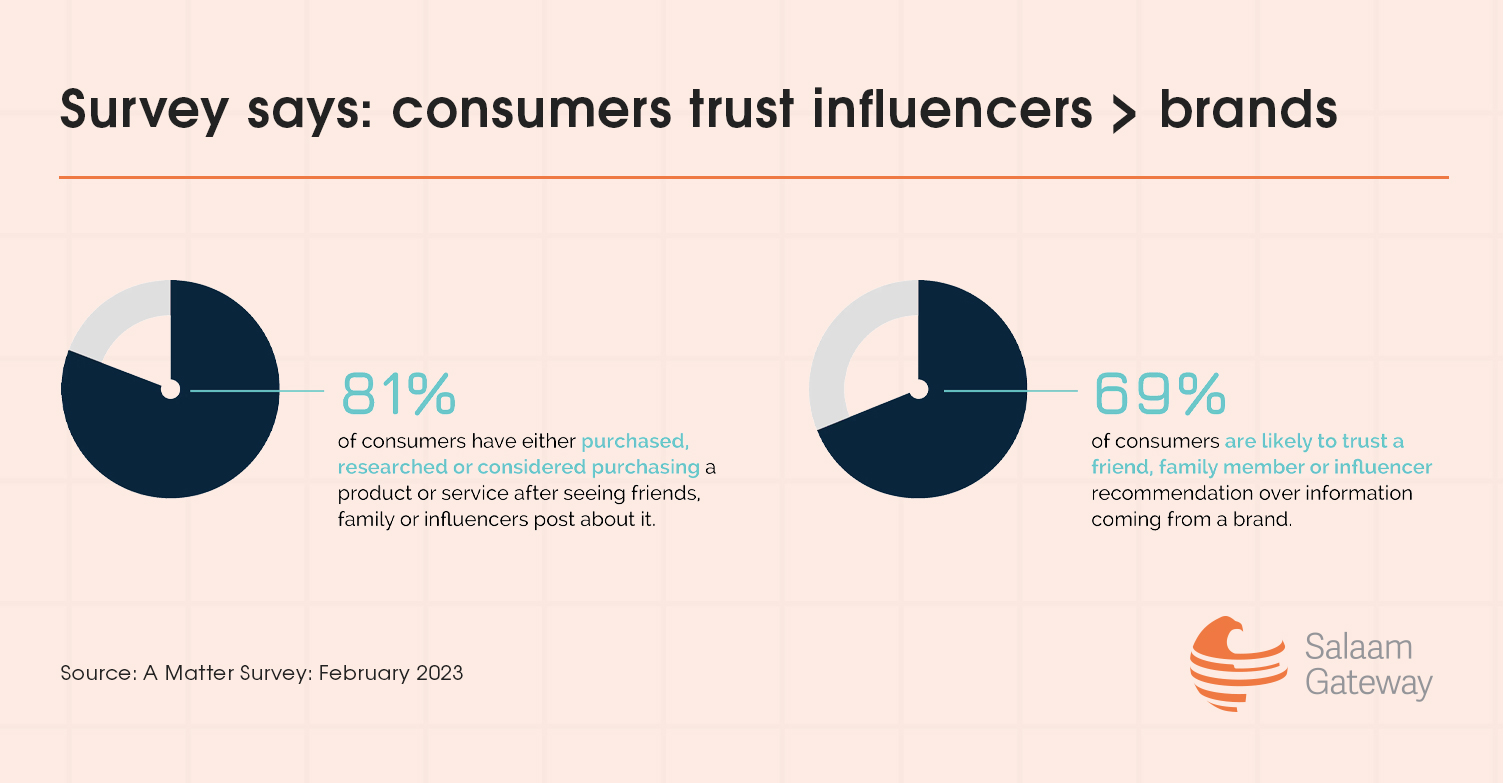How influencers are lending credence to India’s modest fashion sector
Modest fashion is gaining ground the world over, as individuals increasingly prefer clothing that represents their cultural and religious beliefs.
Numbers back the optimism, with Muslim consumer spending on apparel and footwear totalling $327 billion in 2023, marking a 3% year-on-year increase, according to the State of the Global Islamic Economy Report 2024/25. This figure is projected to rise to $433 billion by 2028 at a compound annual growth rate of 5.8%.
India, home to more than 200 million Muslims, is no different. However, what has emerged as a pleasing national trend is that modest clothing is no longer a priority shopping list item for a select group.
Rather, women hailing from a range of backgrounds and religions are making modest sartorial choices because it embodies elegance, comfort, and fashion. Likened to other sectors, modest fashion also relies on forces and factors outside the traditional marketing funnel to create product loyalty.
Brand marketing, as we once knew it, has been upended by the advent of new-media platforms and content. Digital influencers, a cohort of tech-savvy content creators and bloggers who have garnered tens of thousands of followers on social media, have rewritten the marketing playbook. With content that is homely, relatable and engaging, influencers have segued brand power from the stronghold of athletes and celebrities to their own backyards.
Given that 69% of consumers trust influencers, friends and family over information coming directly from a brand, according to a 2023 study, the link between an Instagram influencer and a housewife or a teenager wields incredible power in not only sculpting consumer behaviour but also shaping brands and their destinies.
Moving further, influencer marketing helps stem the rise of duplicate products, enabling genuine brands to forge meaningful alliances with customers.

Capitalising on content
Sana Farheen Shaikh, who established Forever Modest, carved a route into modest fashion due to personal reasons.
As a sports fencer, she struggled to find sportswear that was flexible and modest, driving her to create a brand that offers both. The company, which started out by creating modest work clothes and later added sportswear and swimwear, maintains a decent social media presence of 23,000 Instagram followers. While Forever Modest mainly serves Muslim women, it is fairly popular amongst all who value versatility and style.
“Our main audience are Muslim women, but modest fashion is for anyone who likes comfort and class,” Shaikh tells Salaam Gateway.
Shaikh has teamed up with influencers to grow her brand, working with creators who wear modest clothing as a reflection and extension of their identity, not a marketing act. For her, being authentic and empowering are paramount in every collaboration. If not, the message gets lost.
“Modesty is a mindset - confidence that comes from self-respect. It’s not about hiding; it’s about choosing how you wish to show yourself to the world,” adds Shaikh.
Mumtaz Khan, a designer from the Indian city of Bhopal, believes influencer marketing is crucial, given that social media has changed how people view modest fashion.
“In India, modest clothes used to seem old-fashioned or limiting,” he tells Salaam Gateway.
“Now, with Instagram and YouTube, we can show that they can be modern, chic, and attractive.”
Khan said that when young women see influencers wearing modest outfits to work, or for sports or travel, they start to view modesty as something empowering instead of restricting.
“Influencers help mix global fashion trends with Indian styles. It’s not just for Muslim women; many women outside that community are interested in it, too. Influencer marketing can help make modest fashion popular much faster than traditional methods.”
Varied perspectives
Each entrepreneur views influencer marketing through a different lens. Some creators, like Khan and Forever Modest’s Shaikh, value influencers as a fulcrum of digital marketing, vaulting modest fashion into the top echelons of vogue and style.
The flipside view exists, too. Zeeshan Arfeen, founder of abaya brand Mushkiya, believes brands working with influencers who do not emulate similar values may erode brand equity and the overarching concept of modesty.
The main issue is being genuine. Functioning in a field that weaves faith and identity with sartorial choices and expression, influencers should do more than just don and promote attire – they must embody virtues that accompany the clothing.
Authentic influencers can create trust and forge a strong connect with brands. If a promotion comes through as fake or forced, it could prove counterproductive.
India’s global presence
India has the third-largest Muslim population in the world and a growing fashion industry, which could vault it at the fore of modest fashion. The country has skilled artisans, widespread internet access, and greater exposure to global trends, creating new opportunities for local brands.
Social media is fuelling the growth with social media platforms enabling Indian modest fashion brands to connect with customers in regions like the Middle East and Southeast Asia. For instance,
Forever Modest gained national attention after appearing on Shark Tank India, a business reality television show, while Mushkiya makes modern abayas that attract younger Muslim shoppers globally who wish to meld tradition with style.

Shuriah Niazi